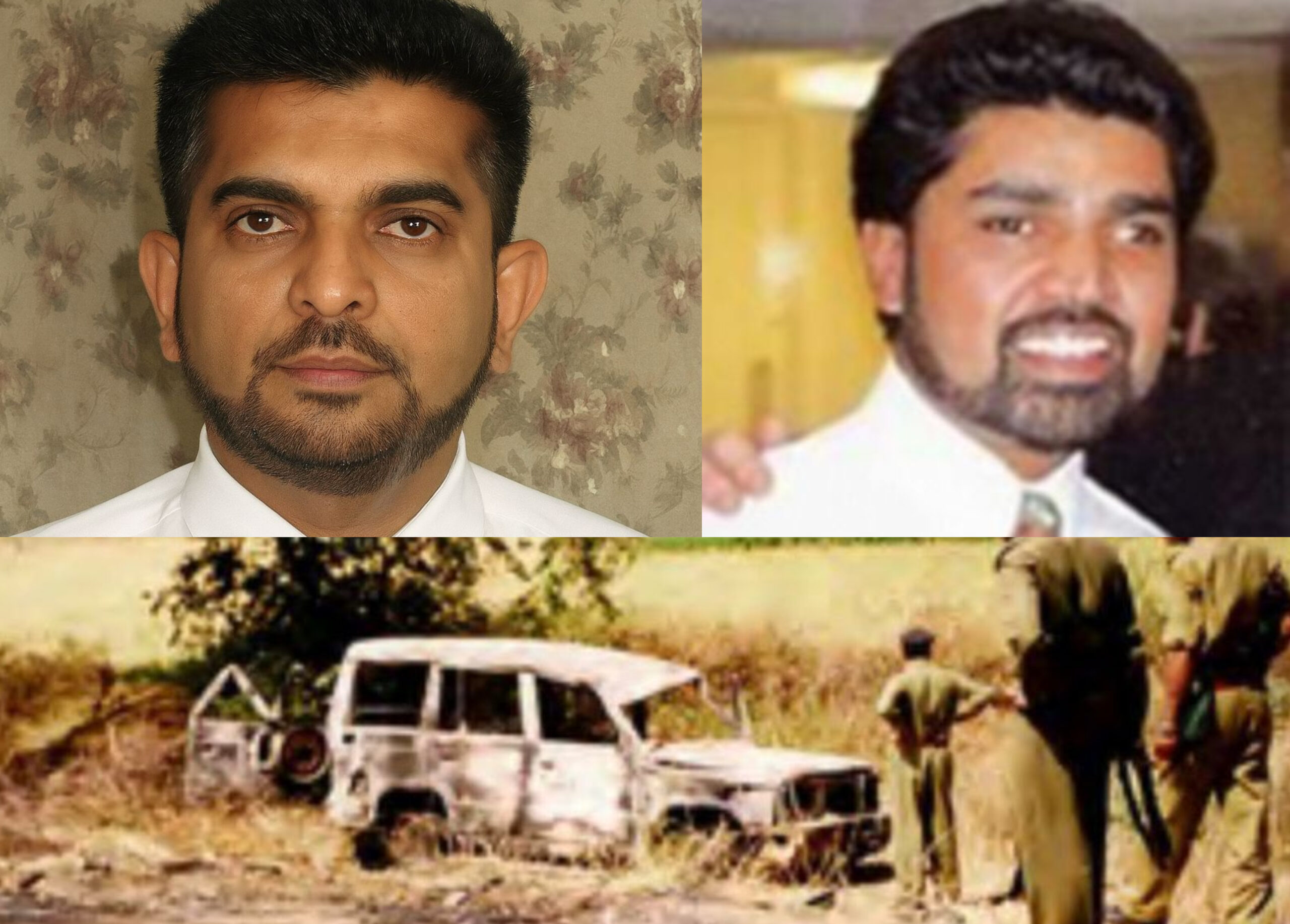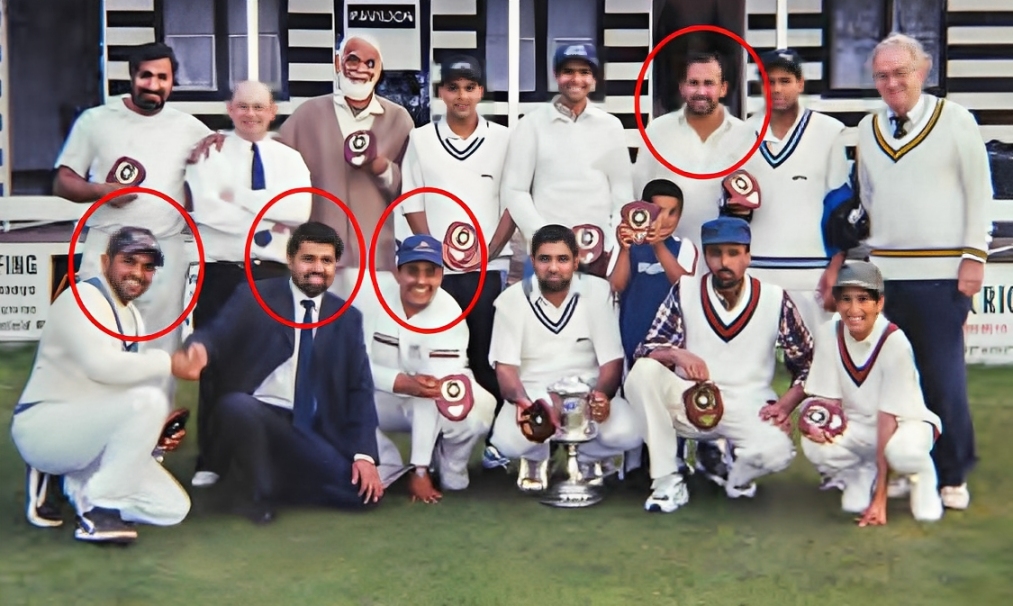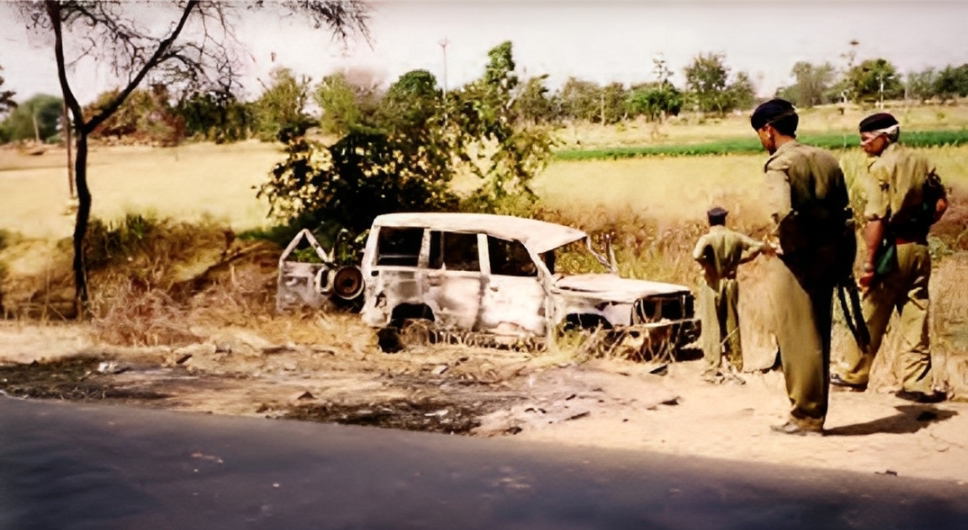
Elham Asaad Buaras
A cross-party coalition of British parliamentarians, faith leaders, and human rights advocates has issued a renewed and urgent call for India to repatriate the remains of two British citizens killed during the 2002 anti-Muslim pogrom in Gujarat, highlighting how the two-decade struggle for justice resonates with contemporary threats posed by far-right politics in the UK.

Photo: Top row 3rd from right: Mohammed Aswat, Bottom row from left: Sakil, Saeed and Imran Dawood (Credit: Dawood family archive)
The call was made at a meeting in the UK Parliament on October 22, convened to support the long-standing Dawood Family Justice Campaign. Saeed and Sakil Dawood were abducted and murdered while on holiday in February 2002; their nephew, Imran Dawood, survived the attack.
For over two decades, their family has sought both accountability and the return of the victims’ remains, requests they say have been consistently denied by the Indian authorities.
The murders occurred during the widespread Gujarat pogrom, in which, according to independent and human rights investigations, over 2,000 Muslims were killed, over 200,000 homes and businesses were destroyed, and scores of brutal rapes were reported.

The Dawoods burnt jeep inspected by the Gujarat Police weeks after the incident. (Credit Dawood family archive)
Subsequent reports from organisations like Human Rights Watch have alleged complicity from elements of the state and local government.
Chaired by Mohamed Iqbal, the MP for Dewsbury & Batley, the meeting heard powerful testimony from family members and experts. Imran and Yusuf Dawood, whose story was featured in the BBC documentary The Modi Question, shared their protracted fight for closure.
The meeting also heard from Akashi Bhatt, daughter of Sanjiv Bhatt, a former Senior Indian Police Service officer who had testified about the events.
Suresh Grover, National Coordinator of The Monitoring Group, which supported the event, highlighted the systemic denial of justice, stating that “Indian police and judiciary [are] implicated” in the case.
The discussion powerfully connected the historical trauma of the Gujarat pogrom to contemporary concerns in the UK.

Photo: Vigil was held outside the Indian High Commission in London on February 28, 2022 to commemorate the murder of 2,000 Muslims, incl 3 Britons, rape of hundreds of Muslim women in Gujarat, India. A family member of the British Muslim victims and survivor of the attack, is seen holding a placard with the names of those murdered in the pogrom. (Credit: Ahmed J Versi/The Muslim News)
Sheikh Ibrahim Hussain of Southport Mosque spoke of the enduring pain for families targeted by religiously motivated violence, drawing a direct line to tactics he sees being deployed in Britain.
He warned that the “politics of hate” that fuelled atrocities abroad is now being exploited by the British far-right, citing the “unprecedented” racist rioting last summer that targeted mosques, migrant communities, and asylum seeker accommodations across 27 towns.
The meeting concluded with a unified call for the Indian authorities to conduct a transparent forensic investigation, repatriate the victims’ remains to their UK families, and adhere to international human-rights standards. As a family spokesperson stated, “Our loved ones were murdered abroad, but our pain has never been distant. Justice delayed is justice denied.”
Feature photos: Sakil Dawood, Saeed Dawood, and the burned-out jeep from which they were abducted. (Credit: Dawood family archive)